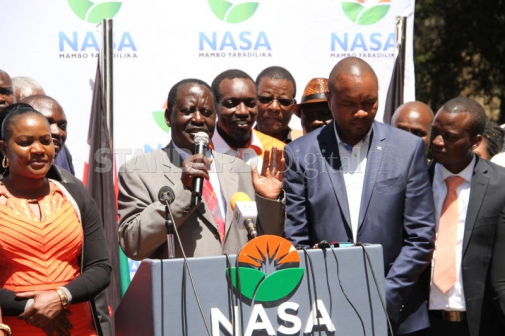×
The Standard e-Paper
Smart Minds Choose Us

The electoral agency cited binding legal contracts and the limited time to the October 26 elections among the hurdles to meeting the Opposition's key demands.
Apart from key timelines and processes already underway, including measures to incorporate recommendations by the Supreme Court in preparations for the poll, electoral commissioners explained their difficulties with some of the demands during Tuesday's meeting with NASA leaders.